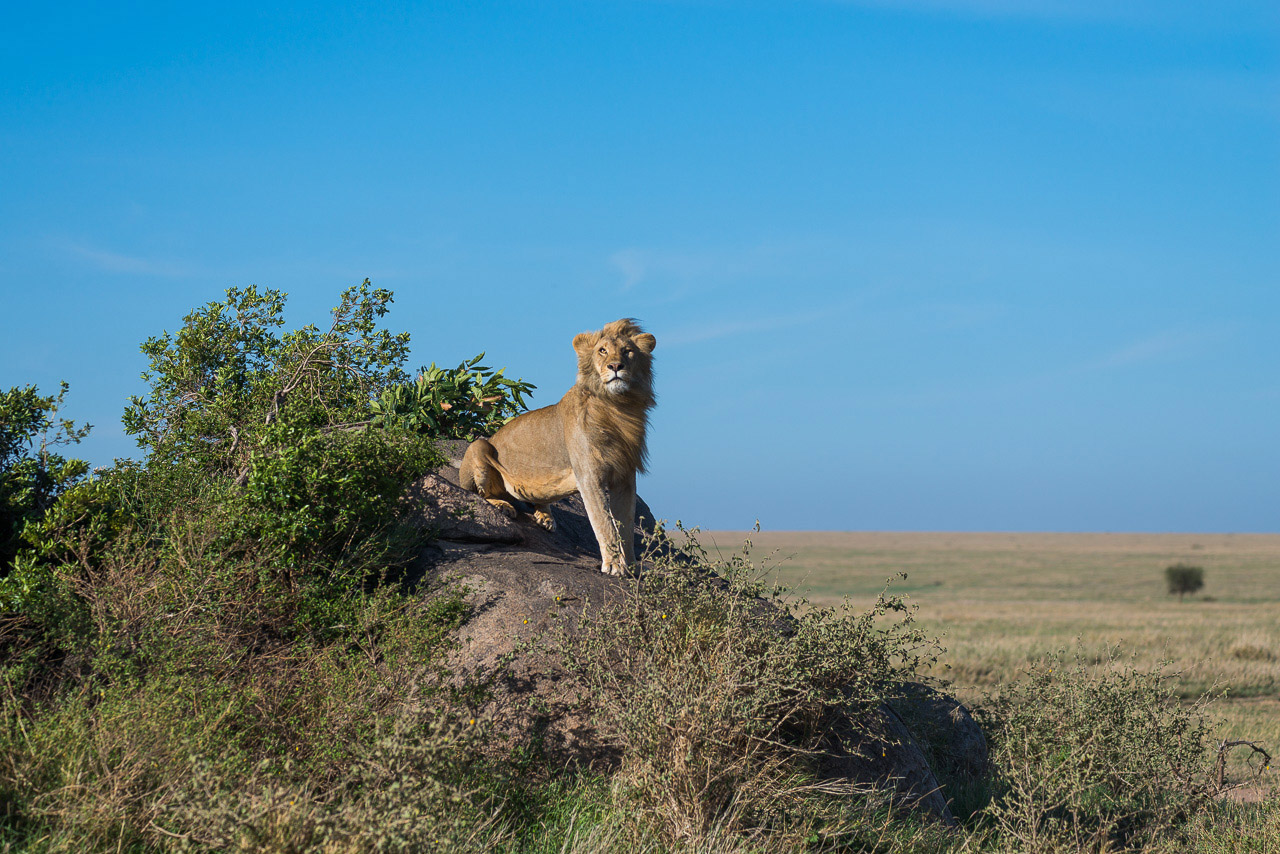


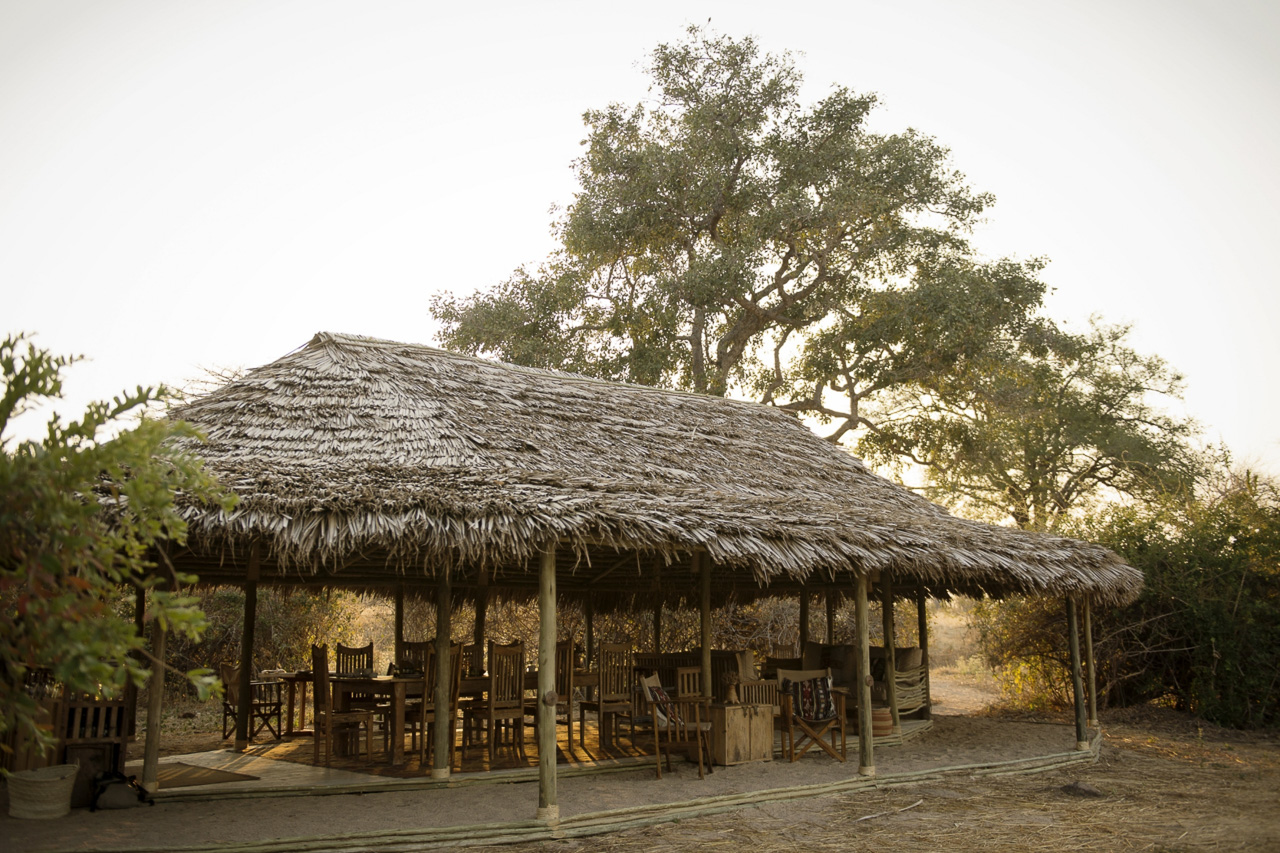
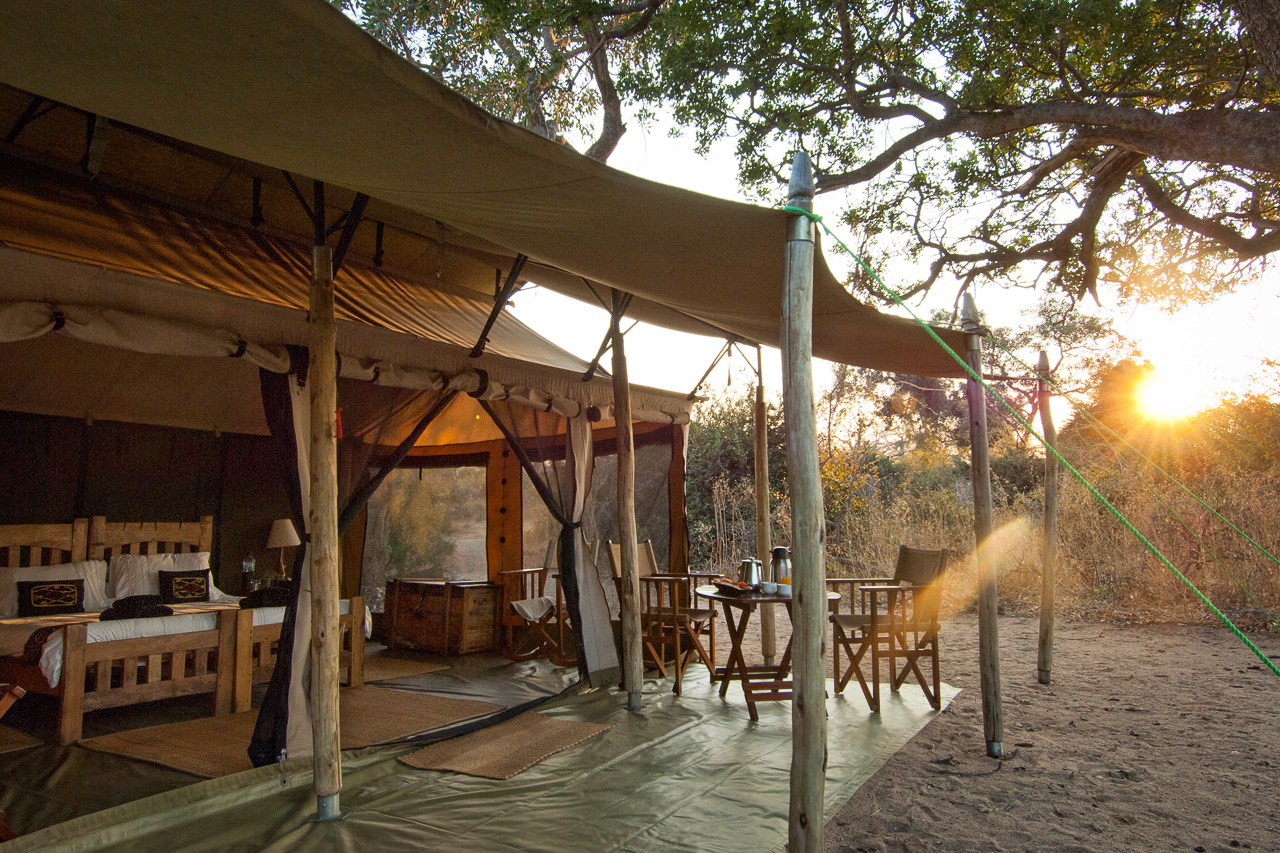
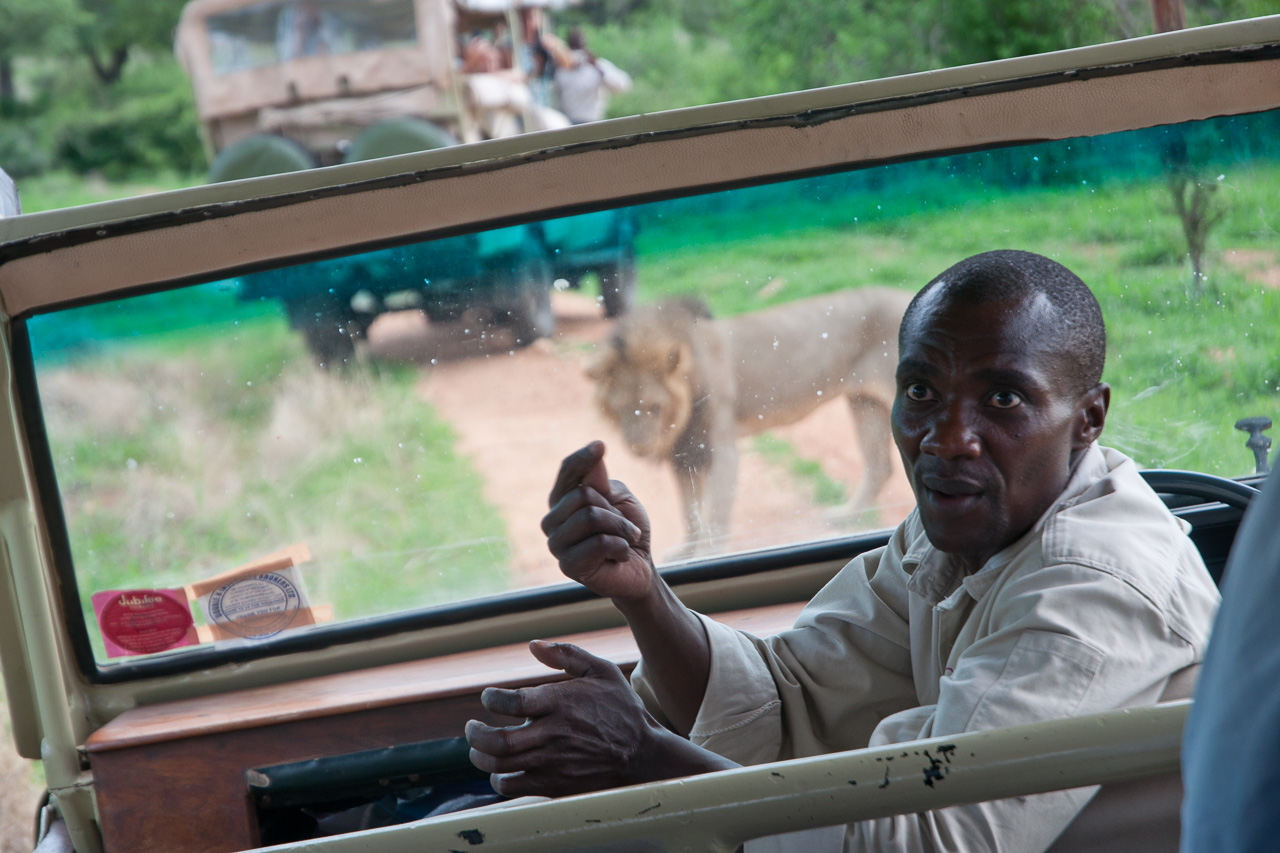
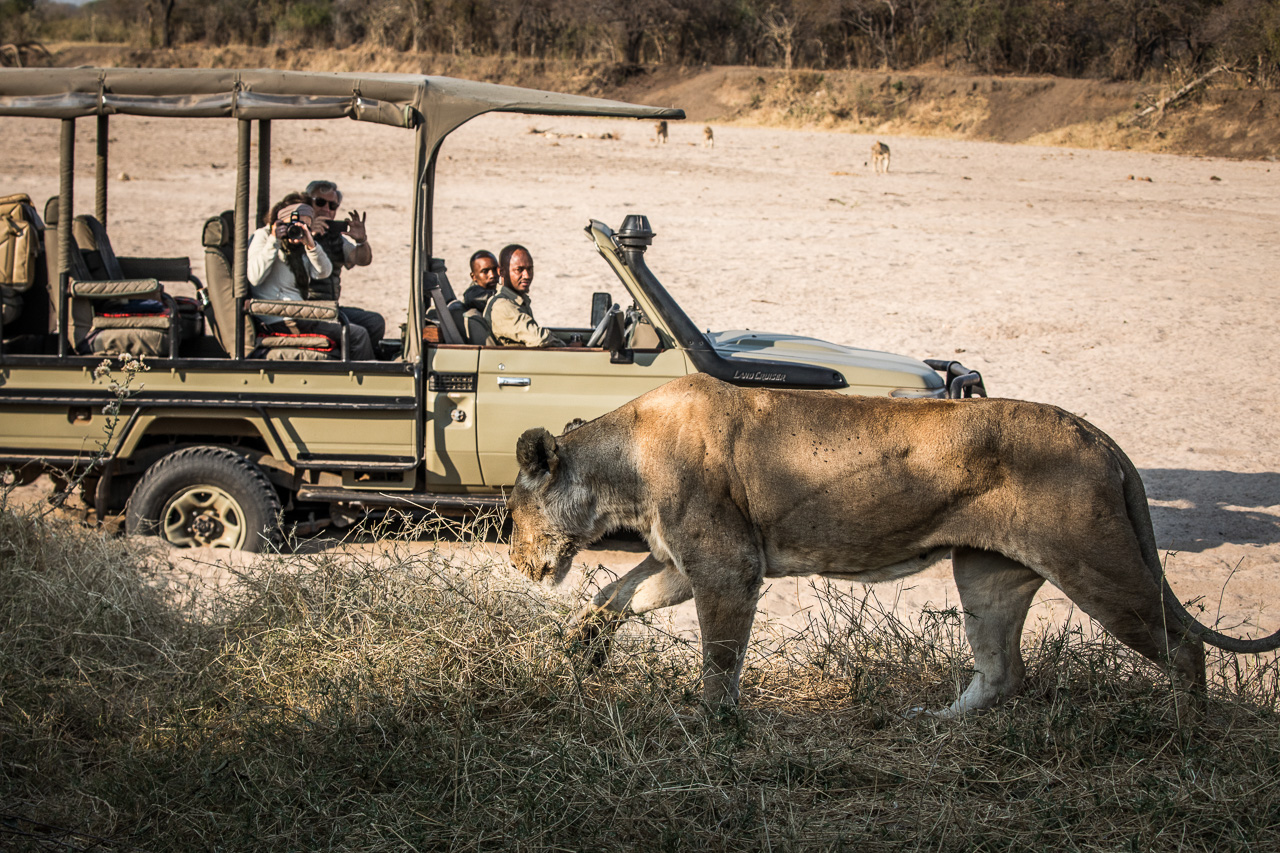
Accommodation Kigelia Camp is named after the many sausage trees (Kigelia Africana) that are found in and around the camp. The six rooms are located hight on the banks of the seasonal Ifuguru Sand River, a tributary of the Ruaha River. The rooms are quite large and provide space for a massive bed, en-suite bathroom with flush toilet and outdoor safari style bucket shower under the stars. There is no running water but hot and cold water is provided when requested.
The park is accessed via air from Arusha or Dar Es Salaam and can be seamlessly combined with a visit to Nyerere National Park. The flight to Nyerere National Park takes approx. 1 hr 30 mins; the flight to Dar Es Salaam or Arusha, including all stops en-route, takes approx. 2.5 hrs.
The drive from Msembe Airstrip to camp takes approximately 60 minutes. Kigelia Camp is situated on the banks of the Ifuguru Sand River in the eastern part of Ruaha National Park.
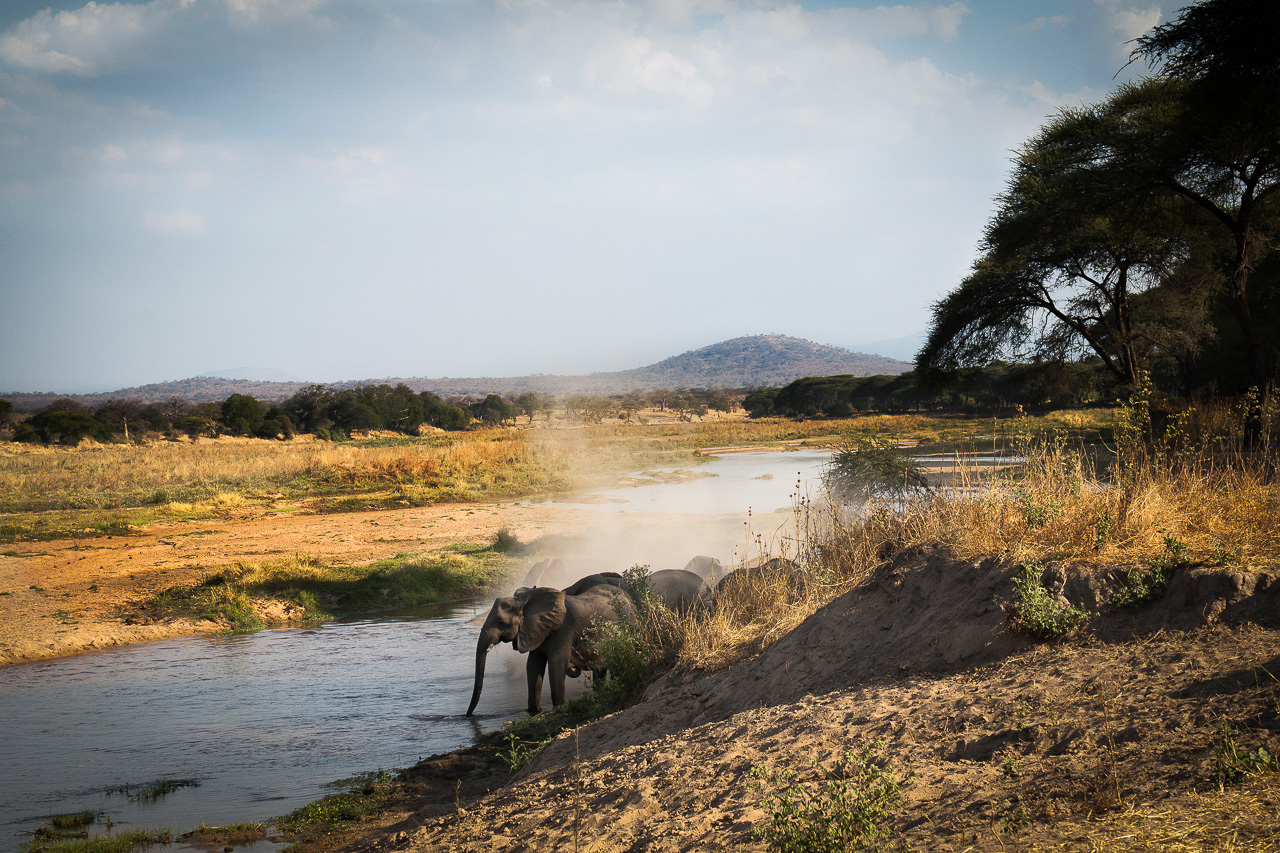
The park expanded in 2008 to include the Usanga Wetlands, and in addition to its 40% miombo forest, also boasts open savannahs, beautiful baobab, acacia and palm forests, as well as several springs, marshes and seasonal flood plains. The park borders on the Mzumbe River to the north and the Great Ruaha River to the south. The Usungu Game Reserve and three further reserves surround the park almost entirely.
Most of the camps are situated at a height of between 800 – 1000 m above sea level, the highest point in the park, however, is a respectable 1868 m. A 50 – 100 m high escarpment is a reminder that the Ruaha National Park is part of the Great Rift Valley. Most camps offer game drives in open 4x4 vehicles and bush walking.
The good camps are located in the park itself, most of them in the eastern part where there is more open flatland and game viewing is usually easier. The western part of the park is heavily forested and home to the tsetse fly, which can sometimes be a problem, but it is quieter here because the main entrance and the rangers’ headquarters are situated in the eastern part.
Ruaha is easy to combine with a visit to the Nyerere National Park, which is a one hours’ flight away; Dar es Salaam is a two hours’ flight away. Guests can fly the big loop from Ruaha and visit Katavi as their next stop. Best time to travel is from June to October.


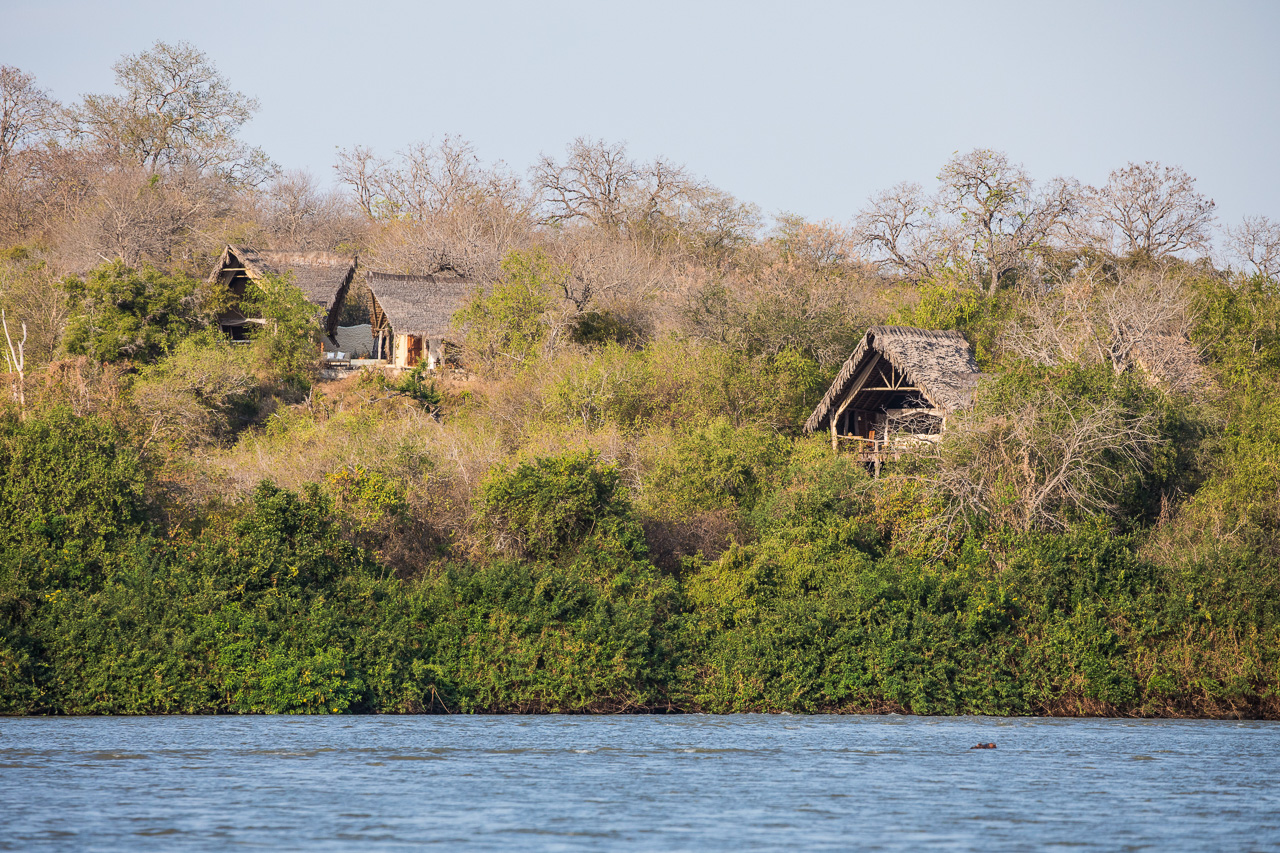
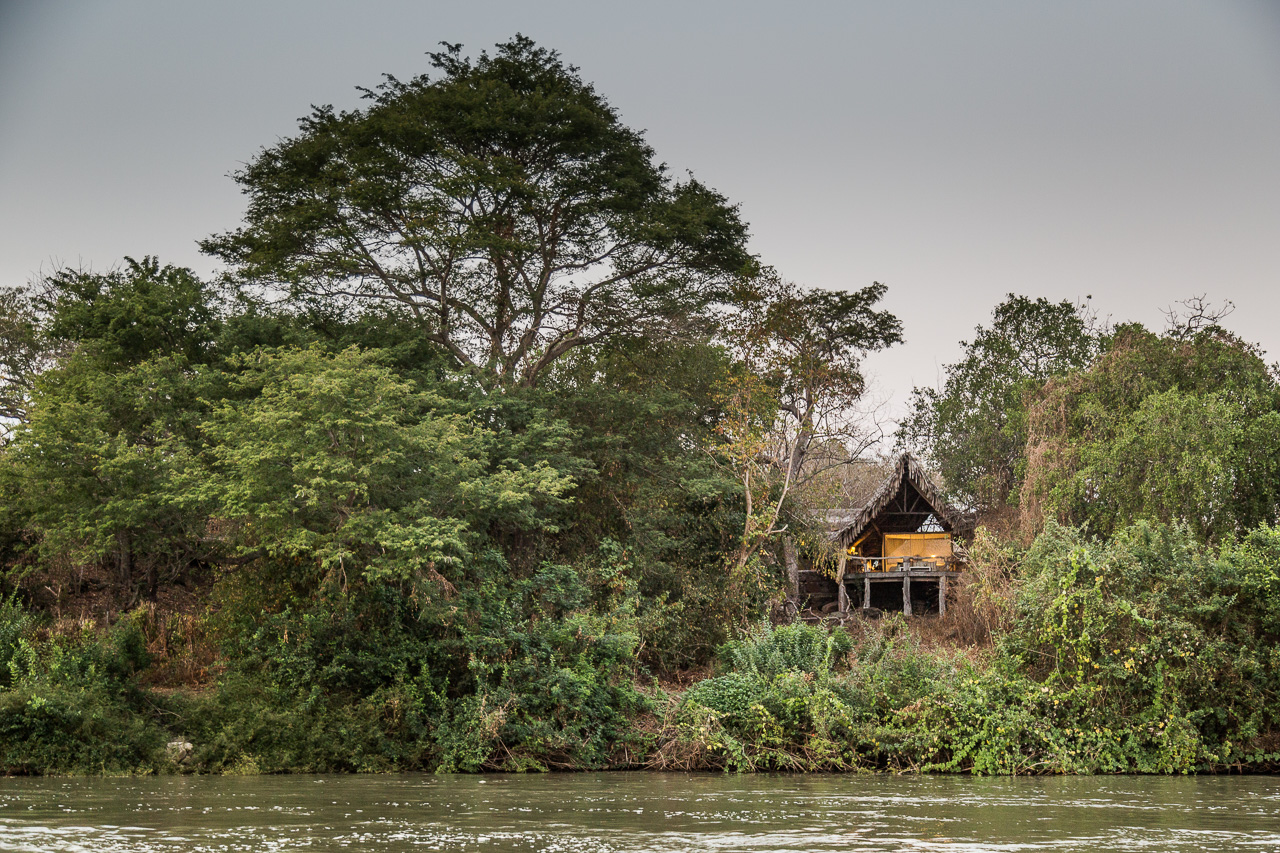
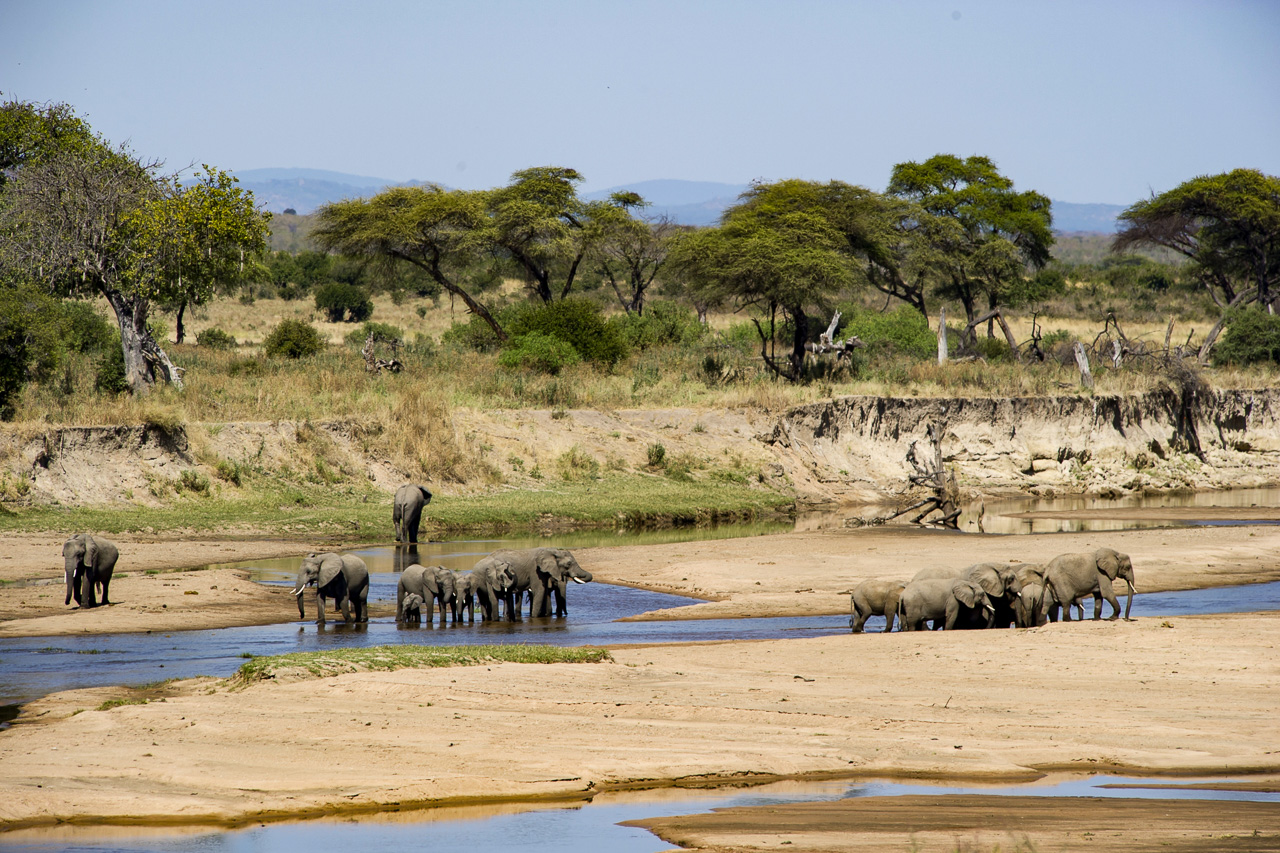
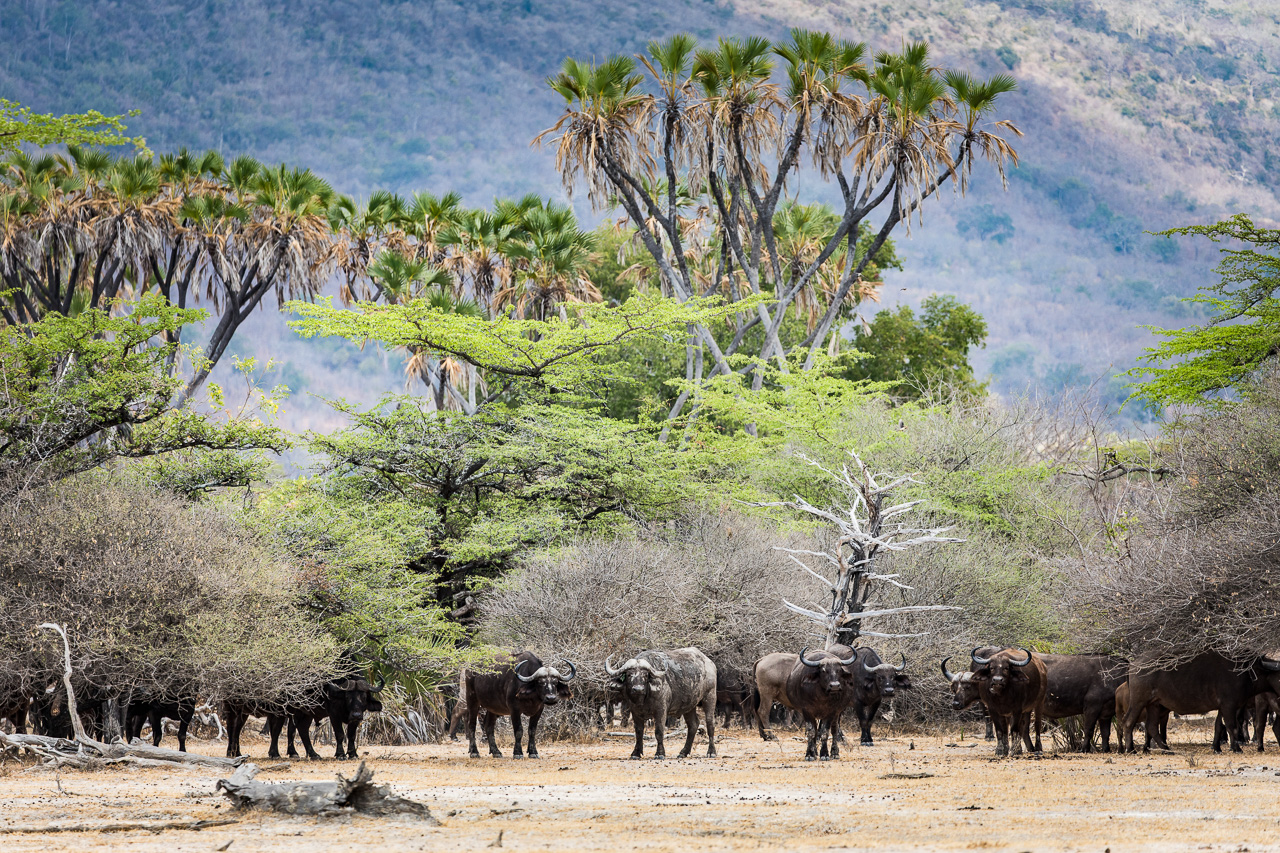
Accommodation Visitors to Sand Rivers are truly spoiled in the lodge's spacious stone and thatch cottages. Situated on the riverbank slope and built atop stilts, these cottages offer spectacular views of the incredible Rufiji River landscape. There are five standard, en-suite riverside cottages and three hillside suites, each equipped with a large bed, ceiling fan, extra lounge and private plunge pool. The rooms have whitewashed natural stonewalls and the open front offers uninterrupted views of the river and the animals that pass by.
The main building houses a restaurant, lounge/bar and large pool. Various decks look out over the lake and enable guests to watch the hippos often found wallowing right in front of them. Breakfast is a highlight at Sand Rivers and is usually a time when visitors slowly awake with the intake of freshly made coffee and realise just how beautiful the world can be.
Kiba Point is a chic and intimate little camp that can be booked privately by a family or group of friends (min. four adults, max. eight adults plus two children). Kiba point is situated just five minutes drive downstream from Sand Rivers. Its four stone and thatch cottages are situated on the very edge of the river and come equipped with a plunge pool and large veranda. The rooms are open-plan and airy, stylishly furnished, comfortable and of a quality similar to the suites at Sand Rivers. A further pool for those hot, lazy days can be found at the main building, which is also the place for meals and feasts. Kiba Point comes with its own cook and private guides.
-> Have a look at Kiba Point
The park comprises 75% miombo woodland, but most noticeable are the many wonderful palms, particularly the borassus and doum palms, as well as the many candelabra trees (euphorbia candelabrum).
Nyerere National Park is accessed by light aircraft from Dar Es Salaam and can be seamlessly combined with a trip to Ruaha National Park. The flight to Ruaha National Park takes approx. 1 hr 30 minutes; the flight to Dar Es Salaam takes approx. 35 minutes.
Sand Rivers has its own airstrip (Kiba Airstrip). The drive from the airstrip takes approximately 15 minutes. The camp is situated south of Lake Tagalala on the edge of the Rufiji River.
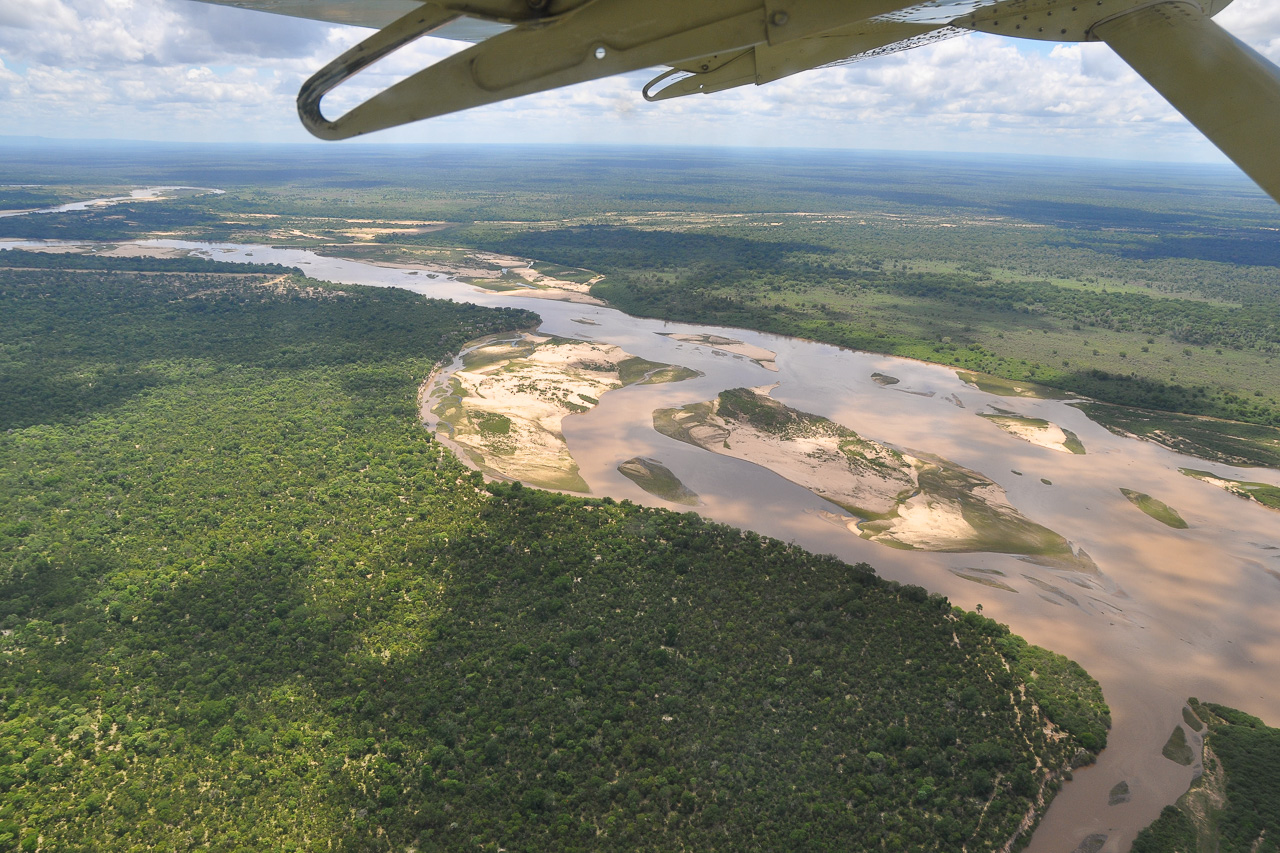
At 600 km long, the Rufiji River is the longest river in East Africa and source of the park’s lifeblood. The branched river system includes five large lagoons, which are (from west to east) Lake Tagalala, Lake Manze, Lake Nzerakera, Lake Siwandu and Lake Mzizimia.
The park comprises 75% mixed miombo forest, but also supports a striking number of beautiful palms, including the borassus and doum palms, and many candelabra trees (Euphorbia candelabrum). The Rufiji River is the park’s lifeblood: the river system, the marshes, canals and lagoons attract all kinds of animals, including crocodile, hippo, buffalo, elephant, lion and antelope. Hyena, leopard and wild dog can also be seen here.
The park has its former name from the British big game hunter Frederick Courtney Selous, who was killed on the banks of the Beho Beho River on January 4, 1917 during a skirmish with German troops under General Paul von Lettow-Vorbeck. It is possible to visit his grave, which is located close to the Beho Beho Camp.
The new name was chosen in honor of Tanzania's founder and first president, Mwalimu Julius Kambarage Nyerere. Nyerere led the nation through independence and remained president of the young republic until 1985. He is revered as the father of the nation.
The park is home to several beautiful lodges, where in addition to game drives, guests can also enjoy boat trips and bush walking. Boat trips take place on the lakes or canals, or as at Sands Rivers Camp, on the main river itself. Distances within the park are immense and the roads very bumpy, but the scenery is stunning. The park is situated some 500 m above sea level and gets very hot between November and February. During this time of the year occasionals rain storms will occur, mostly in the afternoons. Best time of travel is from June to October.
Nyerere National Park is easy to combine with a trip to Ruaha National Park, which is a one hours’ flight away – as is Dar es Salaam.

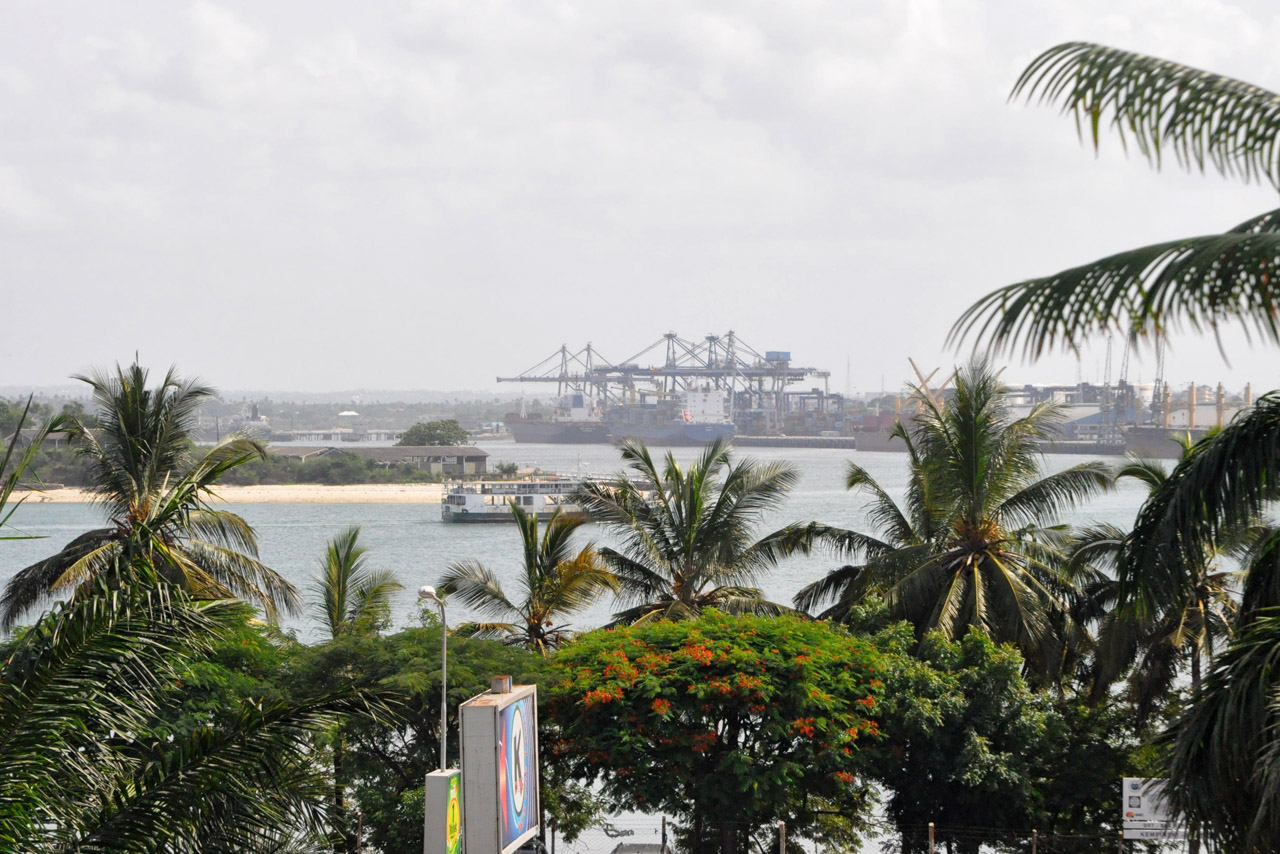
Basic Information
Individual journey. The journey will be planned on your preferred dates.
Duration 7 nights. Min 2 guests. Minimum age 6 years. Weight limit of luggage 20 kg. Luggage in one soft bag only.
Includes all transfers from Dar-Es-Salam to the hotels/camps to Dar-Es-Salam
- Kigelia Camp: Standard Room. All meals, drinks (except premier brands), laundry service, private vehicle / guide provided by the lodge.
- Sand Rivers: Riverside Cottage. All meals, drinks (except premier brands), laundry service, private vehicle / guide provided by the lodge.
Learn more about these areas









